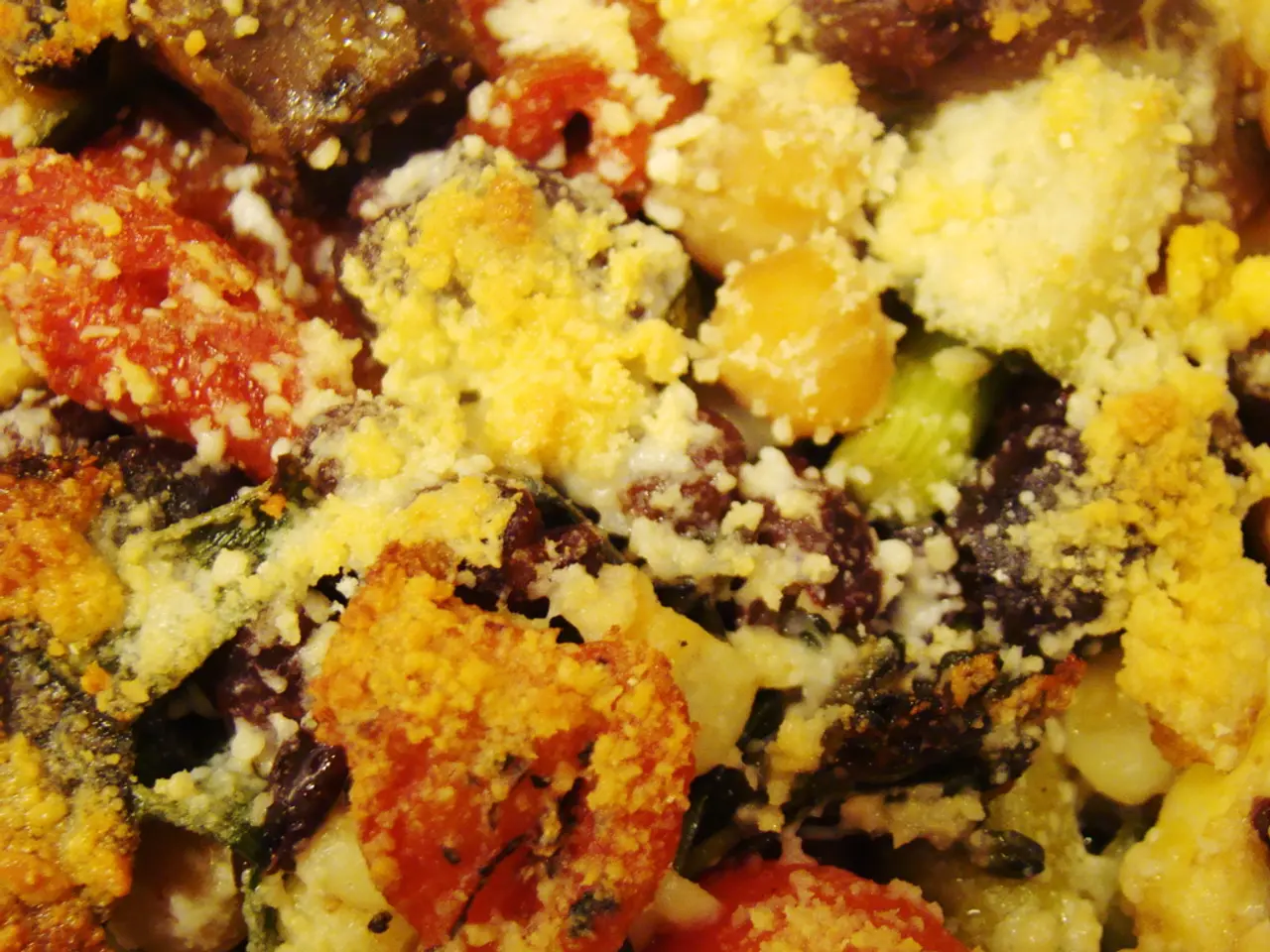Singapore's food security goal aimed at self-reliance by 2030 is currently being reevaluated, as reported by the government
Singapore is taking strides towards enhancing its food security and tackling carbon emissions, as announced by the government in various initiatives.
In a move to address carbon emissions, plans are underway to study solutions for capturing carbon emissions at waste-to-energy plants. A pilot project is set to launch by 2026 to validate these carbon capture technologies.
On the food security front, Senior Minister of State for Sustainability and the Environment, Koh Poh Koon, has confirmed a review of Singapore's goal to produce 30% of its nutritional needs locally by 2030. The detailed results of this review will be presented by the government in early 2025.
Koh Poh Koon also highlighted that farms should assess farming methods and solutions most appropriate for their operating models, considering the need to be commercially viable, climate-resilient, and resource-efficient.
The Agri-Cluster Transformation (ACT) fund, introduced in the 2021 budget with a S$60 million allocation, has supported 43 companies so far, including indoor fish farm Blue Ocean Aquaculture Technology and vegetable farm Yili Farm.
One farming method that has been considered is permaculture, which mimics the natural ecosystem by fostering synergies between crops and animals. However, Koh Poh Koon stated that this method might not be suitable for local production due to its extensive land space requirements. Permaculture could still be a "valuable low-tech complement" for Singapore's fish farms, according to Tan.
Singapore's food self-production remains below 10%. To address productivity, cost, and demand challenges, as well as foster the sector's continued growth, the government is reviewing its food security strategy.
A significant development in the local food sector is the increase in sales of locally-grown xiao bai cai and processed local fish products since the launch of a collective model by the Singapore Agro-Food Enterprises Federation (SAFEF) last May. SAFEF's collectively grown vegetables will now be available at competing supermarket operator Sheng Siong.
Certain food types, such as hen eggs and bean sprouts, already contribute to 30% and 50% of local consumption respectively.
In addition to these initiatives, the government has announced a S$300 million energy efficiency fund for public sector buildings to be disbursed over the next five years. A S$25 million weather science research programme has also been planned to enhance Singapore's ability to understand and predict tropical urban weather, including extreme weather arising from climate change.
Two site-specific studies on Sentosa Island and the nation's south-west coast for coastal protection from rising seas will start by 2026. Singapore-wide coastal protection plans will be funded from the government's annual budget, with a S$5 billion top-up for a coastal and flood protection fund. A coastal protection bill will be introduced in the second half of 2025 after consulting relevant stakeholders.
Koh characterized the "30 by 30" vision as "aspirational" when it was first announced in 2019, noting that the agri-food business climate was more favorable then.
A special report "Sowing the Impossible?" was conducted by our website in 2024, asking if it is time Singapore reviewed its "30 by 30" food production goal. The government will share more details after its review, though no specific timeline was mentioned.
Read also:
- Tobacco industry's suggested changes on a legislative modification are disregarded by health journalists
- Uncovering Political Ad Transparency: A Guide to Investigating opponent's Political Advertisements in the Digital Realm
- Elon Musk praises JD Vance's debate performance against Tim Walz
- Right-wing Israeli minister supports controversial plan for West Bank settlement expansion








